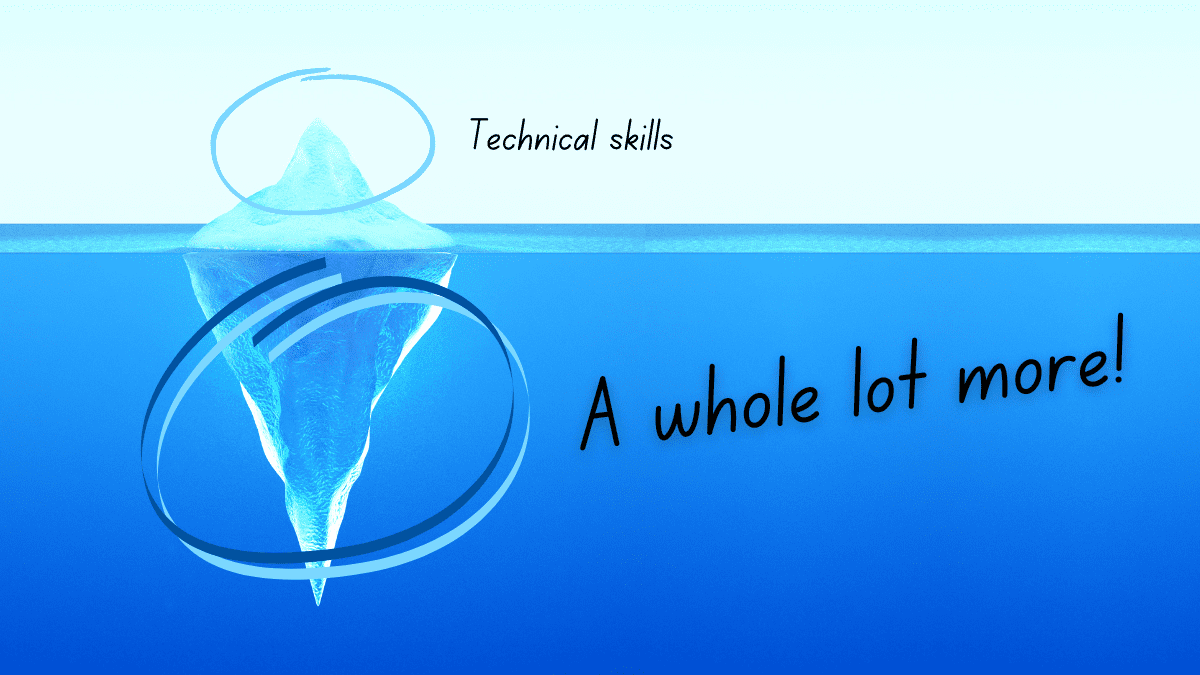
6 Transferable Skills You Might Not Realize You Gained During Your PhD/PostDoc
It’s a common misconception that the only useful skills that scientists bring to the table when jobhunting are technical laboratory skills, resulting in many perfectly qualified candidates being scared off by some of the more “soft skill” requirements in a job description.
While knowing cell culture, flow cytometry, protein purification, and western blots are no doubt valuable, you actually have many more underlying skills than you realize. And believe it or not, showcasing these softer skills could make the difference between landing an interview and having your resume thrown in the trash pile.
Let’s go over just a few of these skills:
1) Project Management and Ownership
This one seems obvious, but many scientists actually forget that being able to juggle multiple projects, experiments, and commitments at one time is a huge undertaking. The fact that it feels second nature to so many exemplifies the fact that scientists are masters at multitasking and moving projects forward.
Don’t believe us? Take a step back and think about all the things you might be running at one time. Here are just a few things that might speak to you:
- Taking care of and splitting your cell cultures in between western blot incubations
- Setting up and doing minipreps as you’re staining microscopy slides for confocal work
- Reading scientific literature to help you plan out an experiment
- Reaching out to others, whether it be another lab member, your PI, someone in your department, or a facility director to help you plan an experiment
- Planning out your experiments and timepoints around things like journal clubs, departmental seminars, and TAing
- Determining whether your project needs to go in a different direction, or whether you need to drop the project altogether
2) Troubleshooting
“Why do my cell cultures look funky?” “How come my protein gel has a huge smiley face?” “Why the heck do I have so much noise in this flow cytometry data?” “And how the hell did my western blot end up looking like a Rorschach ink blot?”
RELATED: 5 Tips for PhD Students and Postdocs to Help Land That Non-Academic Job
At the time you might have the urge to punch a wall, but rest assured that all that troubleshooting is, in fact, valuable for your career. Knowing when to take a step back to re-evaluate a protocol, in addition to knowing the steps to troubleshoot, are immensely valuable. This is especially true if you’re going into a smaller biotech company where you’ll more than likely need to be the subject matter expert at your craft and will thus need to know what to do when (not if) things go awry.
Chances are that beyond the pretty figures in your thesis or paper there are slews of negative data and failed experiments. Don’t be shy about talking to interviewers about the hurdles you had to overcome and how you forged ahead, even if “forging” means scrapping an experiment idea altogether – it shows both grit and critical thinking, which are both immensely sought-after skills.
3) Managing Inventory and/or Funds
This is one that not many folks think about. Are you the person in the lab who runs point in keeping track of the number of glove boxes or petri dishes you have? If you’re a small lab, did you get stuck with doing all the ordering? Did you have to call around to sales representatives to help you with ordering supplies, determining which type of cell culture flask would be best for your needs, or haggling down prices?
Congrats! Not only are you making sure that your labmate Karen isn’t hunting you down and yelling at you for not ordering the 10 mL serological pipettes in time, but you can also list this as a skill on your resume! It not only shows leadership, but it shows the ability to be able to keep track of supplies and know what’s needed – things that all tie into successful project management.
4) Leadership
Have you ever mentored someone in the lab? Whether it be helping a new labmate get up to speed or taking charge of an undergraduate’s honors project, these are valuable skills that are certainly worth highlighting. Even if you’re simply the more senior lab member and are considered the go-to source, this is worth mentioning.
5) Communication
Ever present in front of your department? Create/present a poster or give a talk at a conference, whether it be for a departmental retreat or a large scientific meeting? Work with a collaborator at another university? Chances are you have – make sure to note this in your resume!
Also, be sure not to discount any non-technical communication opportunities you might have had. These could include things such as:
- Writing blog posts geared more toward general audiences, either about your research or another topic
- Taking workshops to help you with your communication skills, whether it be science communication-focused or general communication (such as a Toastmasters meeting)
- Tweeting about your science for lay audiences (yes, really)
- Talking about science to non-technical audiences
- Volunteering to talk about your research or scientific interests on a podcast or YouTube series
- Creating visual content, such as infographics and videos, to help depict a message
6) Grant Writing
At some point during your training you were likely encouraged to apply for some kind of funding, whether it be a departmental training grant or a national fellowship such as the NSF GRFP, NDSEG, or NIH grants. Whether or not you were awarded, it’s worthwhile to mention that you sought and applied for independent funding for your project. This shows interviewers that you have initiative, especially with regard to the larger fellowships since folks are often hesitant to apply.
- About the Author
- Latest Posts
Sarah Ellinwood is BioBuzz’s Managing Editor. A scientist by training and a science communicator at heart, Sarah specializes in making complex concepts understandable, engaging, and exciting. She received her Ph.D. in molecular and cellular biology with a focus in infectious disease immunology from the University of Maryland and is passionate about all things related to scicomm, peer mentorship, and women in STEM.





![[Podcast] Grow Your Career in Biotech with Chris Frew](https://biobuzz.io/wp-content/uploads/2021/06/6f294e33-856c-4098-8303-719b753a9771-300x300.jpg)